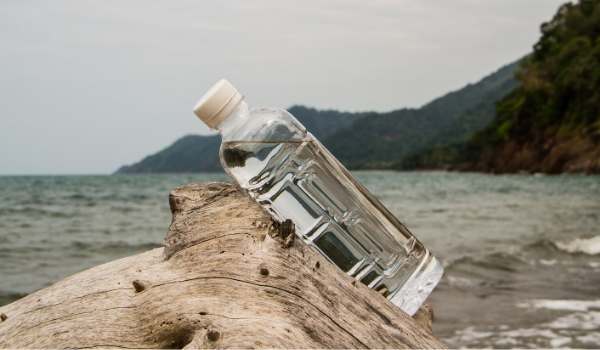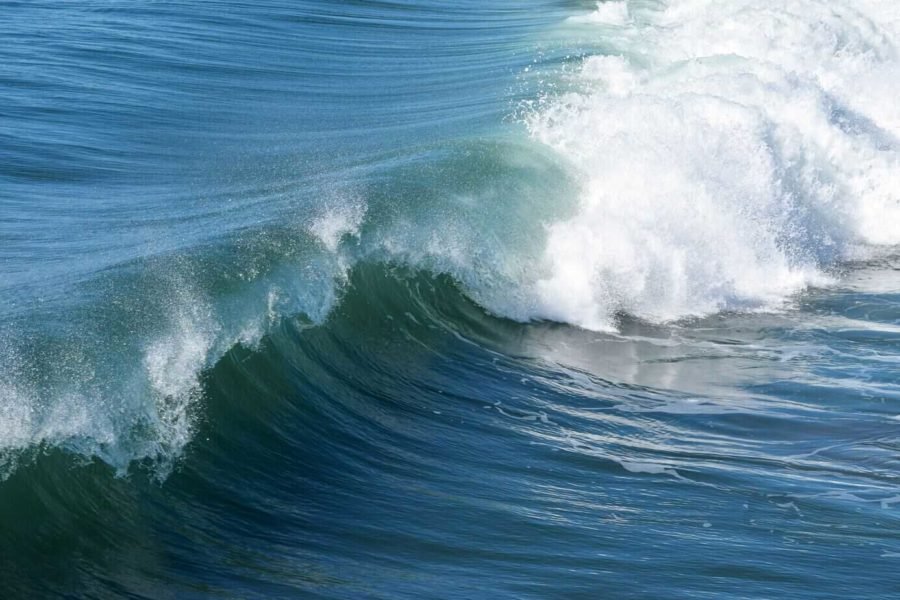Not long ago I accidentally swallowed a mouth full of saltwater while soaking in a hot tub at a hot springs resort and I couldn’t help but wonder, “Can drinking saltwater or seawater make you sick or even kill you? What are the side effects of drinking salt or seawater?” Clearly drinking either seawater or saltwater is not good for you, so I decided to investigate my first question and a couple of others and share my findings.
Of course, drinking small amounts of salt or seawater won’t kill you! However, drinking enough saltwater can most definitely make you sick (cause nausea and vomiting) and large enough amounts can cause dehydration which, if left untreated, potentially could lead to death. Even one small gulp of seawater could make you sick depending on your body, current hydration, and whatever else may be in the water that you swallowed.
“Living cells do depend on sodium chloride (salt) to maintain the body’s chemical balances and reactions; however, too much sodium can be deadly. Human kidneys can only make urine that is less salty than saltwater. Therefore, to get rid of all the excess salt taken in by drinking seawater, you have to urinate more water than you drank. Eventually, you die of dehydration even as you become thirstier.”
– The National Oceanic and Atmospheric Administration
Inevitably, you must consider the concentration of salt(NaCl) that is in the water. Consider for example normal Saline, like in nose sprays. It is a mixture of salt and water. It contains essentially the same amount of salt and water as a normally hydrated person. If you drink this it will not increase or decrease your hydration or in other words, you won’t get more or less thirsty. It contains 9 grams of salt per liter of water. As for seawater, there are a lot of variables, but on average seawater has a concentration (salinity) of about 35 grams per liter of water.
To learn how to make salt or seawater drinkable check out our article 5 Foolproof Ways to Make Salt or Seawater Drinkable!
How much seawater can I safely drink?

The best answer to this question is none, however, it depends on your current level of hydration but it definitely is not recommended that you drink any. Even drinking one swallow of seawater has the potential of making you sick to the point of throwing up. At a minimum drinking salt water is going to take you one step closer to dehydration.
Anyone who has swallowed water while swimming in the ocean knows that it won’t kill you but if you are thirsty and drink seawater it will not help satisfy thirst but make your thirst increase. It will also increase your frequency of urination in an attempt to neutralize or normalize your body’s salt levels.
Our bodies are finely-tuned machines with lots of back-up systems in place. Sodium is one of many substances that our bodies need to function properly. Not surprisingly, our bodies have lots of back-up systems to keep the sodium levels in our blood exactly where they need to be.
Most of us know that too much salt in our diets is bad for people with high blood pressure. But most people don’t realize that salt actually can be poisonous. Taking in a lot of sodium can overwhelm our back-up systems and cause dramatic increases in sodium levels. That’s true if we take it all at once, or if we take in large amounts over a period of days or weeks.
– NCPC (National Capital Poison Center)
Check out this YouTube video to see what actually happens when you drink seawater
If you drink seawater, how much freshwater do you need to drink to offset the seawater you drank?
The answers I found suggested that you would have to consume more than double the amount of distilled (no salt) water than the seawater that you consumed to neutralize without adding any hydration.
Seawater has 35 grams per liter of salt, if we mix one liter of distilled (no salt) water with one liter of seawater, we have 17.5 grams of salt for each liter of water present. This is still far more than the suggested daily salt intake. Healthline.com says, “Health authorities recommend between 1.5 and 2.3 grams of sodium per day. Yet, increasing evidence suggests that these guidelines may be too low. People with high blood pressure should not exceed 7 grams per day, but if you’re healthy, the amount of salt you’re currently consuming is likely safe.” So ideally, to offset 1 liter of seawater you should drink more than 3 liters of water but drinking too much water at once is dangerous and definitely NOT recommended.
Essentially, there are a lot of variables to consider and even some controversy. In the end, it is undeniable that if obtaining fresh water is difficult, drinking even just a little bit of seawater is not going to make your thirst improve. If you are in a survival type situation, there is no safe amount of seawater you can drink.
What are the side effects of consuming saltwater or seawater?

There are several potential side effects of consuming too much salt water or seawater. These side effects can include:
- Dehydration
- Increased Blood Pressure
- Calcium loss
- Nausea
- Weakness
- Delirium
At the extreme, as you become more dehydrated your ability to cope will fail. If you still don’t drink any water to reverse the effects of excess sodium, the brain and other organs receive less blood, leading to coma, organ failure and eventually death.
Can drinking salt water make you throw up or vomit?
Yes, drinking salt water can make you throw up or vomit. In the past, long ago, people have used salt to make themselves throw up after poisoning but this is a dangerous practice and has been fatal to some. Simply the NCPC does not promote drinking salt water to make yourself vomit for any reason.
So does drinking saltwater or seawater make you crazy?
Simply, it is possible that if you try to make saltwater your main source of water intake then you will become dehydrated and eventually delirium will settle in. So yes, too much sea or saltwater consumption can make you go crazy!
Is the Saltwater Flush a good idea?

I’ve heard before that doing something called the Saltwater Flush can be healthy for you… However, it seems as though this practice is somewhat controversial and I would advise against it. A salt water flush is drinking a mixture of warm water and non-iodized salt. Drinking salt and warm water has a laxative effect. It typically causes urgent bowel movements within a half-hour to an hour, but it is possible for it to take longer. Participating in the salt water flush has the same potential side effects that I mentioned above such as dehydration, increased blood pressure (if you have high blood pressure then the salt water flush is definitely not a good idea for you), calcium loss, nausea, and delirium.
Don’t do a saltwater flush if you have:
- heart problems
- diabetes
- edema
- kidney problems
- high blood pressure
- gastrointestinal issues, such as ulcers or inflammatory bowel disease
It seems as though there are only two reasons to try the salt water flush. First, you’re chronically constipated or second you’re experiencing irregular bowel movements. Be very cautious if you choose to give it a try.
In Conclusion
It is important to note that you can actually make seawater drinkable, by using a very simple technique called desalination. However, Generally speaking, a good rule to live by is to avoid drinking sea or saltwater. Of course, consuming small amounts of saltwater won’t kill you but clearly salt and water are better consumed separately. Remember, small amounts of salt is good and lots of fresh water is a must!


